'Lawmen: Bass Reeves' tells the unknown tale of a Western hero. But is it the Lone Ranger?
- Oops!Something went wrong.Please try again later.
"Lawmen: Bass Reeves" has been telling the long overdue story of a real-life Western hero, the formerly enslaved Reeves (David Oyelowo), who became the first Black deputy U.S. marshal west of the Mississippi during a legendary 32-year career.
But is the Paramount+ series also telling a Lone Ranger origin story?
Recent "Lawmen" episodes (released weekly on Sundays) have signaled support for the theory that Reeves inspired the famed masked lawman from the 1930s radio show "The Lone Ranger" and the ABC TV series that ran from 1949-57.
Sunday's fourth episode of "Reeves," filled with daring arrests by the U.S. marshal, features Reeves donning a tramp disguise to catch two dangerous outlaws. It's a cowboy hat tip to the notion that Reeves' penchant for camouflage was the predecessor of the iconic black mask.
"We pay homage to that disguise," says series creator and writer Chad Feehan. (Oyelowo and "Yellowstone" creator Taylor Sheridan are executive producers.) "We certainly aren't shy about winking and nodding to the audience about the legend, that the Lone Ranger was inspired by the real Bass Reeves."
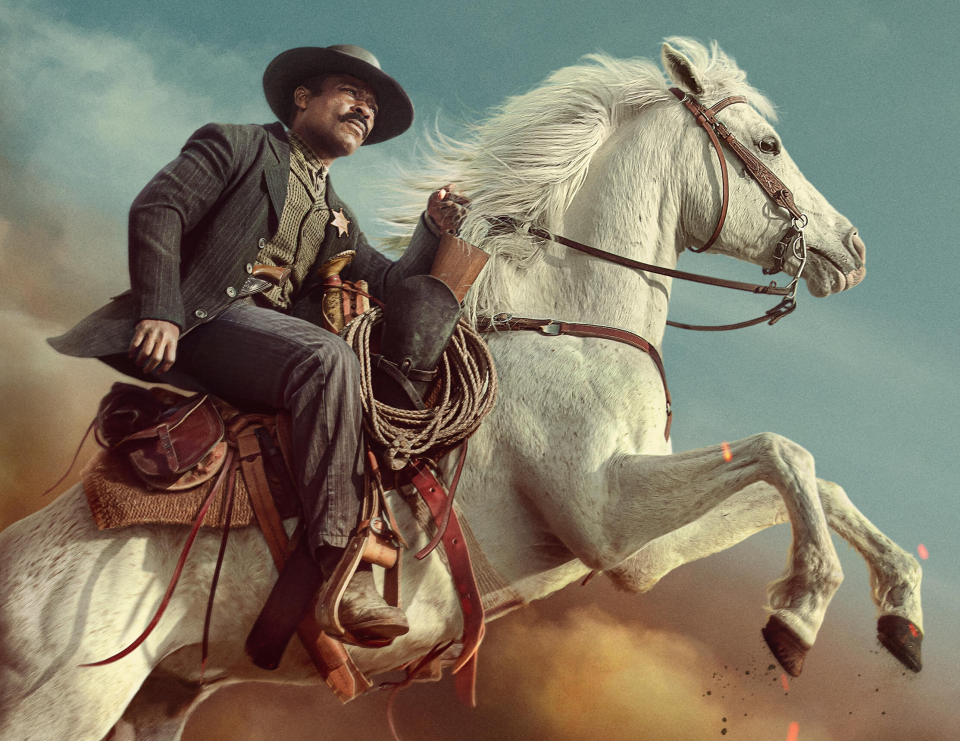
How 'Lawmen: Bass Reeves' nods to the (fictional) past
The series poster featuring Reeves atop a rearing white horse is the biggest Lone Ranger callout, clearly mimicking the iconic image of the masked rider (primarily played by Clayton Moore in the early TV series) and his white horse, Silver.
In "Lawmen," Reeves rides a white horse (actually called a gray), works a posse with a Native American (a predecessor to the Native American sidekick Tonto) and wields two Colt pistols, the firearms used by the Lone Ranger.
"It's funny because all these story points are taken from Bass Reeves' own story," Oyelowo says. "It's impossible to ignore the parallels, but it becomes a chicken or egg thing: Are we telling Reeves' story, or confirming that the Lone Ranger borrowed from those stories?"
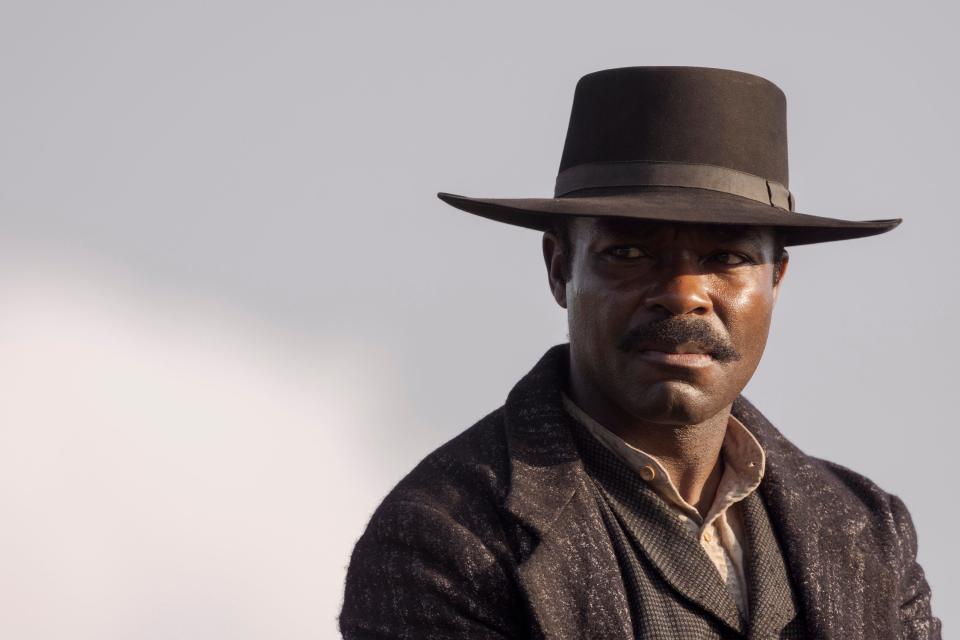
Author Sidney Thompson, a "Lawmen" creative consultant, says the fictionalized TV series follows the real, historically documented beats of Reeves' remarkable life which had been "whitewashed from history for over 100 years."
'Bass Reeves' based on two historical fiction novels by Sidney Thompson
"Lawmen" borrows heavily from the first two historical fiction novels from Thompson's "Bass Reeves Trilogy": 2020's "Follow the Angels, Follow the Doves," and 2021's "Hell on the Border." The book, TV series and a minor 2019 movie follow Reeves' remarkable journey from slavery to his commission as deputy U.S. marshal by Federal Judge Isaac Parker (played by Donald Sutherland in "Lawmen").
Responsible for apprehending criminals in the 75,000-square-mile region of what is now mostly Oklahoma and Arkansas, the imposing 6-foot-2-inch-tall Reeves was credited with killing 14 outlaws and arresting as many as 3,000 others, including his own son, surviving the dangerous job before retiring in 1907.
The Lone Ranger connection was sparked by historian Art T. Burton, author of 2006's “Black Gun, Silver Star: The Life and Legend of Frontier Marshal Bass Reeves.”
In the groundbreaking Reeves biography, Burton points out Lone Ranger similarities, including the gray horse, the need for disguise, and Reeves' penchant for handing out silver dollars, just as the Lone Ranger left silver bullets. But there's no smoking gun proving Reeves is the progenitor of the Detroit-based radio show character or later TV series.
"I doubt we would be able to prove conclusively that Reeves is the inspiration for the Lone Ranger," Burton wrote in "Black Gun," adding, "We can, however, say Bass Reeves is the closest real person to resemble the fictional Lone Ranger on the American Western frontier of the 19th century."
The work spurred overdue attention on Reeves, as well as debate over the Lone Ranger question, including a 2015 episode of Bill O’Reilly’s popular "Legends & Lies" Fox News series. Even Thompson has a qualified belief Reeves is the inspiration.
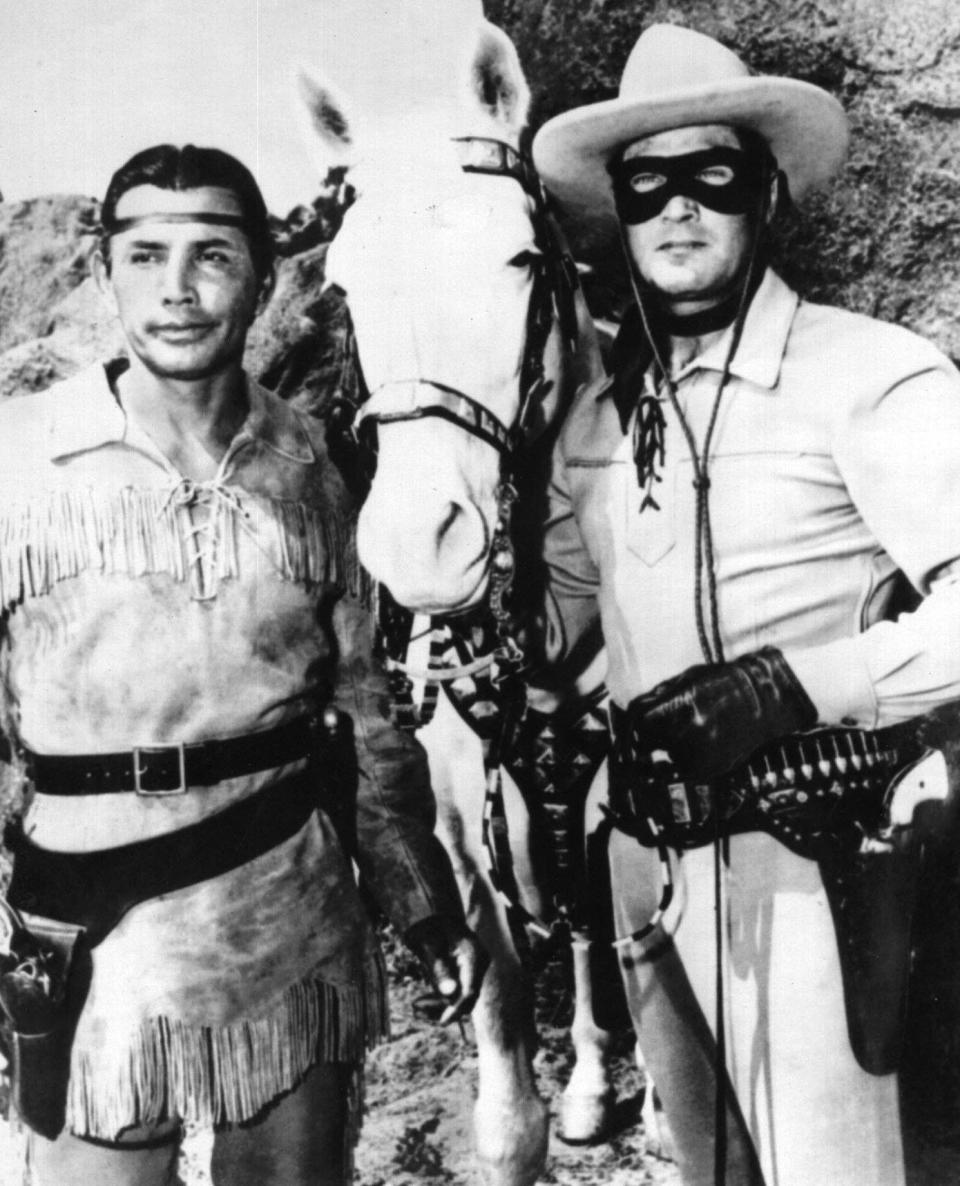
"I don't think we can definitively say the authors of the radio show 'The Lone Ranger' took Bass Reeves' life and appropriated it," Thompson says. "But it certainly looks like that's possible."
Star David Oyelowo 'never saw myself represented' in Western genre
Oyelowo, raised as the Lone Ranger-loving son of Nigerian parents in London, first heard about Reeves' real exploits in 2014, and became intent on telling the story.
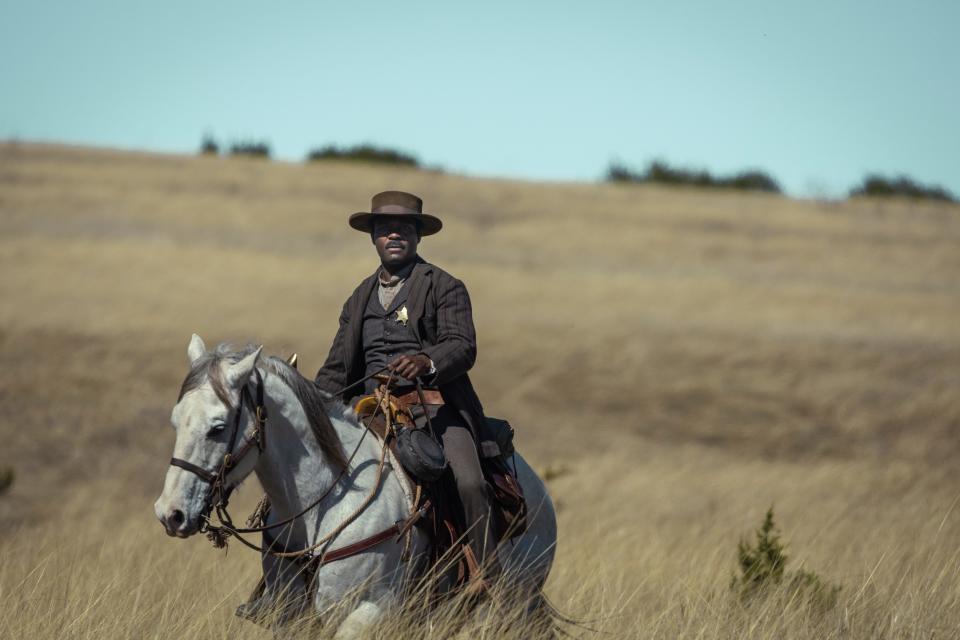
"I felt truly robbed," says Oyelowo. "As someone who always wanted to be a cowboy growing up, I never saw myself represented in that genre. And yet here was the greatest of them all. My obsession was built on the fundamental wrong that the world didn't know Bass Reeves."
Oyelowo and Feehan made a pact to honor Reeves' story. Making the Lone Ranger connection was further down on the list of priorities. Still, part of the intensive yearlong horseback training Oyelowo underwent involved learning that Lone Ranger-esque horse rear.
"I spent months practicing rearing a horse," says Oyelowo. "I wanted the world and my 6-year-old self to see that specific shot."
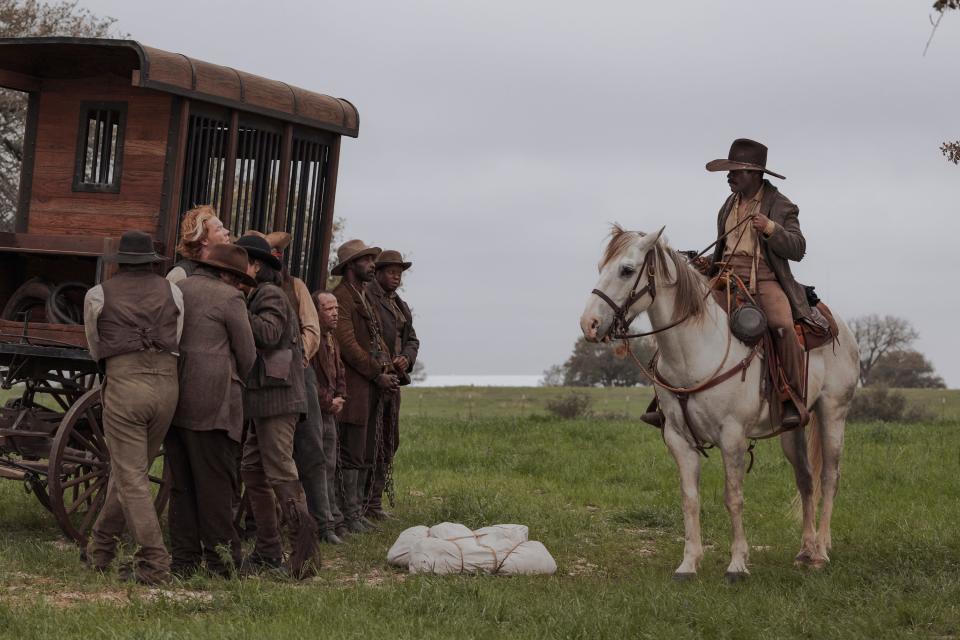
Oyelowo is more skeptical about the real Lone Ranger connection.
"I don't know if that's true, if I'm honest," Oyelowo says. "But I actually think Bass Reeves is bigger than the Lone Ranger. The Lone Ranger didn't have to deal with enslavement or the fact that many people he was bringing to justice thought that he was lesser than them. The real Bass Reeves was far more impressive. (So) let's wink at that Lone Ranger story, but bring the audience for the real ride."
This article originally appeared on USA TODAY: 'Bass Reeves': Was real Western lawman the Lone Ranger inspiration?

